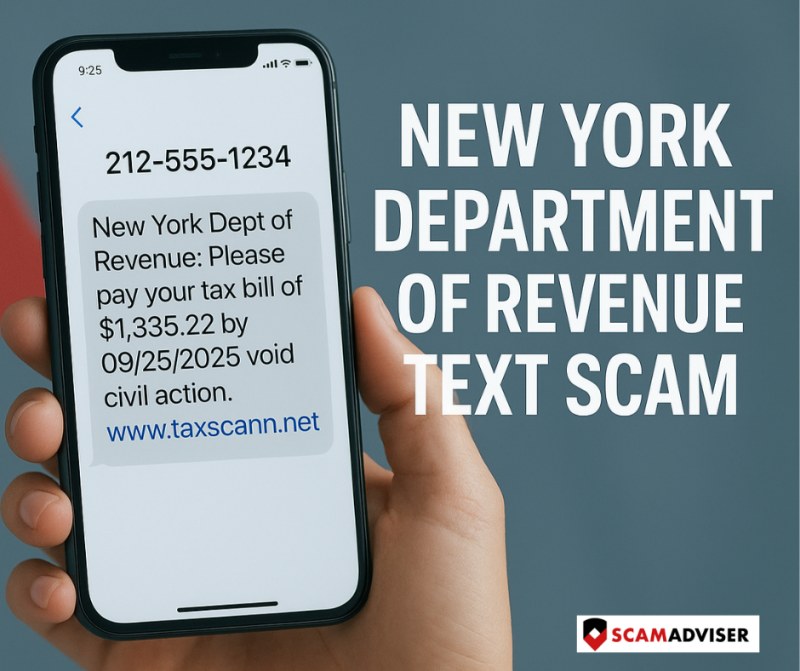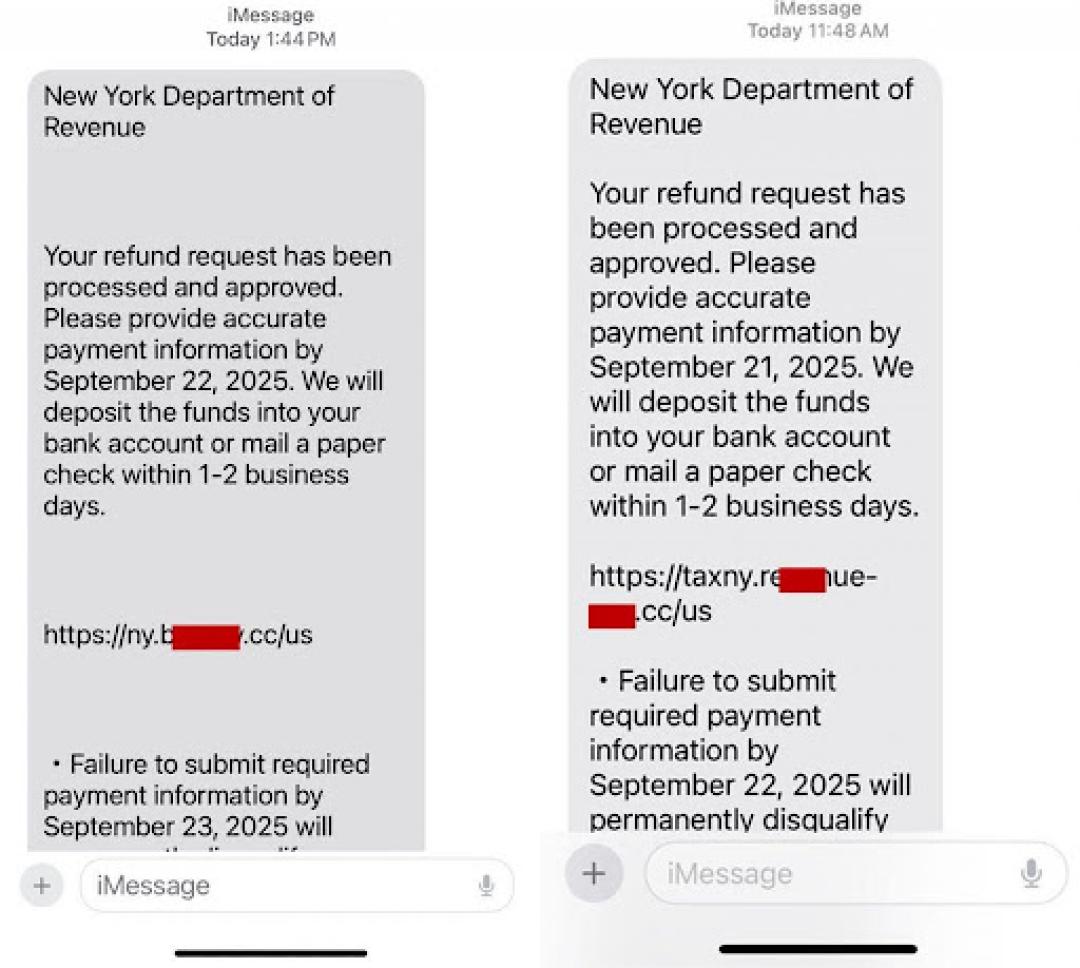One text from a fake “New York Department of Revenue” could cost you everything. Scammers are sending threats of phony tax bills or promises of fake refunds to steal your identity and money. Here’s how to spot — and stop — the scam.
Scam Alert: Fake “New York Department of Revenue” Texts
- The agency doesn’t exist — the real one is the NYS Department of Taxation and Finance (NYS DTF).
- Texts either threaten fake tax bills or promise fake refunds.
- Links in the texts lead to phishing sites that steal your info.
- Do not click, do not reply.
- Always verify at tax.ny.gov or by contacting NYS DTF directly.
What is the "New York Department of Revenue" Text Scam?
It’s a phishing scam where fraudsters impersonate tax officials. They send you a text claiming you must act immediately because:
- You owe back taxes and could face legal action.
- You are owed a refund and need to claim it now.
Source: Trend Micro
The message always includes a malicious link. Clicking it leads to a fake website designed to harvest your personal information.
What Kind of Information Are Scammers After?
These texts are designed to steal data for identity theft, including your:
With this information, scammers can commit identity theft, empty accounts, or open loans in your name.
Red Flags: 5 Ways to Spot a Fake NY Tax Text
Look for these critical signs to quickly identify a fake text:
- The Name is Wrong: New York’s real agency is the Department of Taxation and Finance (NYS DTF), not the "Department of Revenue."
- Unprompted Contact: Government agencies do not text people out of the blue about tax debts or refunds. Legitimate correspondence is sent via official mail.
- Urgent or Threatening Tone: The language is designed to rush you ("Pay immediately," "Claim your refund now") so you don't have time to verify the message.
- Suspicious Links: Real government sites end in .gov (like tax.ny.gov), not random letters, numbers, or a .com address.
- Payment Demands: The NYS DTF will never demand immediate payment using gift cards, cryptocurrency, or wire transfers.
Action Plan: What to Do if You Receive a Scam Text
If one of these scam texts lands on your phone, follow these steps immediately:
- Do Not Click or Reply: Do not click the link, and do not reply, as replying confirms your number is active and encourages more spam.
- Forward the Text: Forward the entire text message to 7726 (SPAM). This free service helps cell providers shut down the fraudulent numbers and links.
- Block the Number: Use your phone’s settings to block the sender's number to prevent further contact.
- File a Complaint: Report the incident to the federal government at ReportFraud.ftc.gov.
- Notify NYS DTF (Optional): You can also report the scam directly to the NYS DTF on their official website.
What if I Already Clicked the Link or Shared My Info?
If you clicked the link or provided any personal or financial information, act quickly to protect yourself:
- Contact Your Bank: Call your bank and credit card companies so they can monitor or freeze accounts associated with the information you may have shared.
- Place a Fraud Alert: Place a fraud alert with one of the three major credit bureaus (Equifax, Experian, or TransUnion).
- Report Identity Theft: File an official identity theft report at IdentityTheft.gov.
- Change Passwords: Immediately change all important passwords, especially for your email and banking accounts.
FAQs
Q: Is the New York Department of Revenue real? A: No. The correct agency is the New York State Department of Taxation and Finance (NYS DTF). Scammers use the incorrect name because many other states do have a Department of Revenue.
Q: How do I report a scam text in New York? A: Forward it to 7726 (SPAM), block the sender, and file a complaint at ReportFraud.ftc.gov.
Q: What should I do if I clicked on a scam text link? A: Immediately call your bank, place a fraud alert with a credit bureau, file a report at IdentityTheft.gov, and update all your passwords.
Q: Can the NYS DTF or the IRS collect taxes via text message? A: No. Neither the NYS DTF nor the IRS will initiate contact with you by text message, email, or social media to request personal or financial information.

